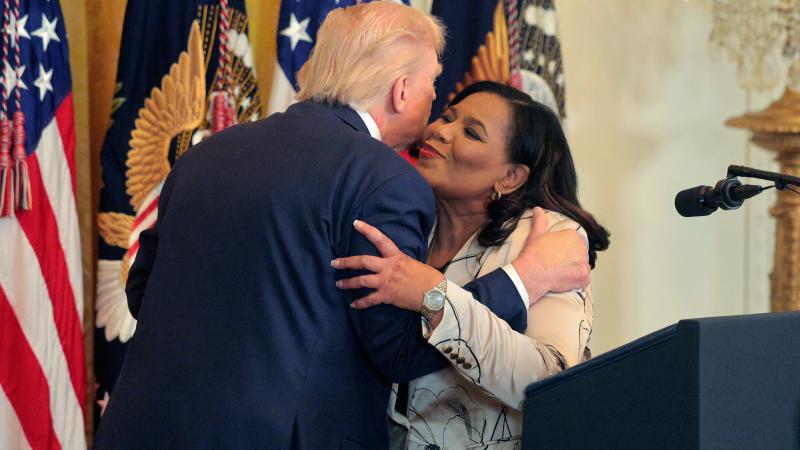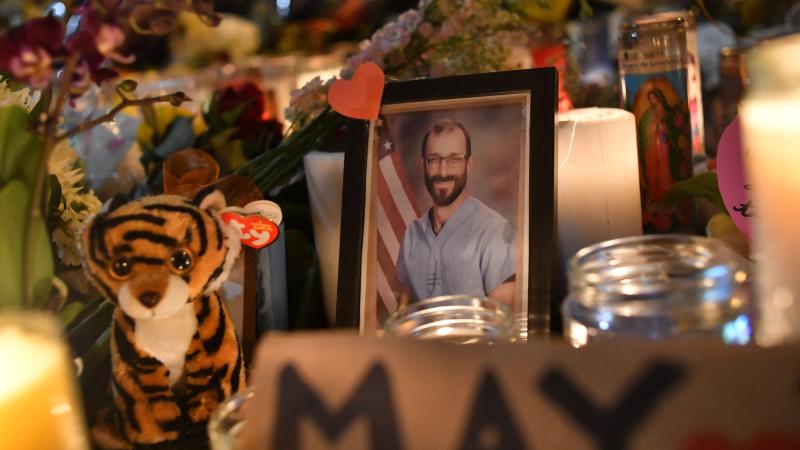Hillary Clinton calls border surge under Biden a 'chronic problem'
"It's a chronic problem because we have chronic unrest and violence in our region, particularly in Central America," Clinton says
Former Secretary of State Hillary Clinton characterized the record surge of migrants and unaccompanied minors at the U.S.-Mexico border occurring under President Biden as a "chronic problem."
Richard Haass, president and CEO of the Council on Foreign Relations, asked Clinton for her take on the current situation at the border and pointed out that some are calling it a crisis.
"It is fast becoming one, if it hasn't already become one," he said to Clinton. "What is your sense of what can and should be done to get that situation under control both at the border, what we need to say, what we need to signal, and maybe what we need to do vis-a-vis the places that people are coming from?"
"Look, I consider it a chronic problem," the 2016 Democratic presidential nominee said on Monday. "We saw in the Obama administration, where President Obama said repeatedly don't come. We saw in the Trump administration, where, you know, children were literally snatched from their mothers' arms as a cruel idea of deterrence to try to prevent people from coming.
"We're hearing from the president, the secretary of Homeland Security, the message of, 'You know, we're going to treat children humanely, but don't come.' So clearly, this is a chronic problem, and it's a chronic problem because we have chronic unrest and violence in our region, particularly in Central America."
Clinton said most of the illegal migration is coming through Mexico from the Northern Triangle countries. She said corruption, narcotics trafficking and gang violence need to be addressed there.
"The primary source of immigration used to be Mexico, and for now a number of years, the Mexican economy, opportunities in Mexico have improved, and there's actually been net migration out of the United States back into Mexico," she said. "So the source of our real challenge now is Central America, the three so called triangle countries that are really the source of most of the immigration flow.
"I was there to begin a process in those countries, in Honduras, in El Salvador, in Guatemala, working with, obviously, others in the region, to help them do a much better job in dealing with corruption, increasing economic opportunities, stabilizing institutions, providing schooling, which, unfortunately, in a lot of places is still sporadic at best, in order to create a more peaceful, safe environment."
Clinton also said that climate change has "impacted some of the agricultural opportunities in those countries.” She noted that Plan Colombia is a model of what could potentially be done to assist El Salvador, Guatemala and Honduras.
"We should be sending experts down there to figure out what can be done, and we need to have the same kind of long-term relationship that we have with Colombia," she said. "With Plan Colombia, which started in the '90s and continued into the Bush administration and beyond, to help again, try to stabilize; trying to create an environment for the end of a conflict. If we don't focus on the root of the problem, it's like that old story where you're plucking the babies out of the water, and somebody finally says, 'I'm going to go find out who's throwing them in.' Well, the combination is the conditions, particularly the violence, the gangs, the unrest in the countries combined with mercenary traffickers, the coyotes, who promise so much and basically take the last bit of money that these people will have.
"If we don't focus on that, we're going to continue to be plucking the babies out of the water instead of trying to deal with the larger problem, and the corruption — the narcotic corruption, the financial corruption — is really at the root of not providing a stable government that produces results for people."
As for advice to the Biden Administration on the immigration challenges, Clinton said: "With the immediate problem, the president has to follow the law. Number one, we have laws, and until they're changed you have to follow the law but do it in a humane, compassionate way that certainly tries to reverse the cruelty, the deliberate cruelty of the prior administration, but nevertheless recognizes that we've got to follow the law and we're trying to do the best we can."
















